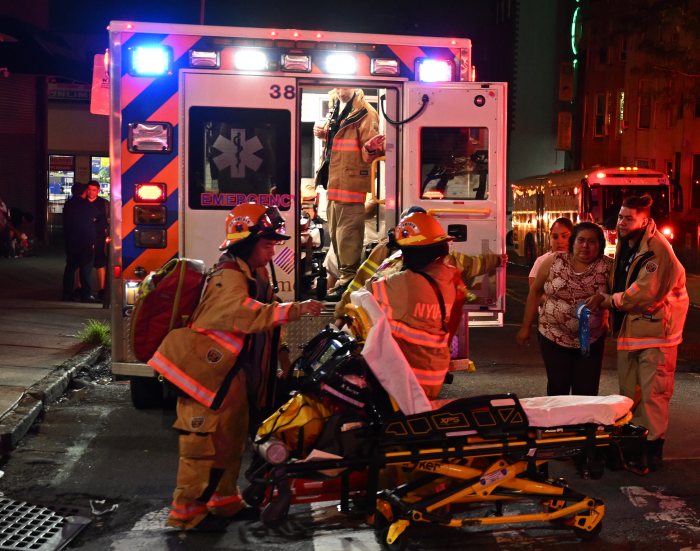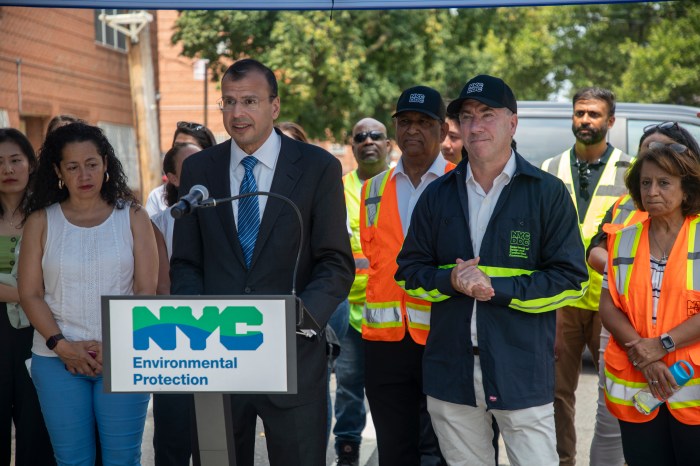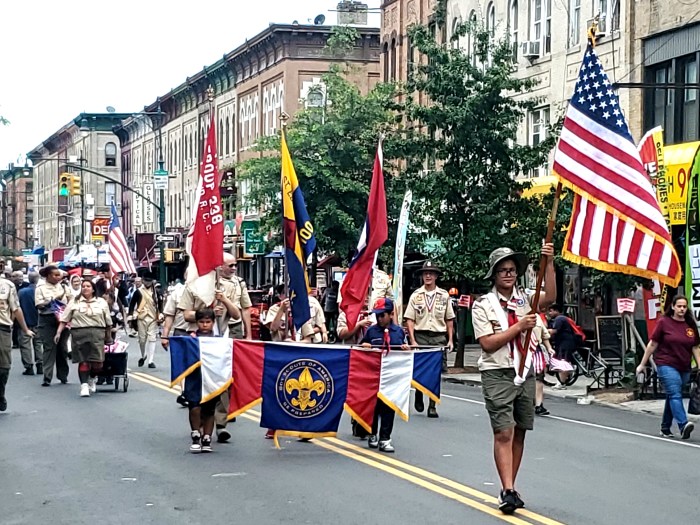Mourners gathered on Tuesday evening to hold vigil for a fallen Brooklyn cyclist, whose life was cut short by a tractor-trailer that struck her on Third Avenue in Sunset Park Monday.
“She was kind, she was generous,” said a teary-eyed friend of slain cyclist Em Samolewicz. “We were both doored last week, but she didn’t make it.”
Samolewicz, a 30-year-old Sunset Park resident, was traveling north along Third Avenue near 36th Street at 9 a.m. on July 29, when she swerved into the path of a massive Freightliner truck while trying to avoid being doored by a parked van, cops said.
Paramedics rushed the victim to NYU Langone Hospital-Brooklyn, where she was pronounced dead, according to police.

Samolewicz’s death marks the 18th cyclist fatality citywide, nearly double the 10 bikers who died in 2018 — the safest year on record. She’s the 13th cyclist to die in Brooklyn, where more cyclists have perished compared to other boroughs in eight of the last 12 years.
Last week, Mayor Bill de Blasio called the cyclists’ deaths “a crisis and emergency,” and announced his plan to dramatically expand the city’s bike lane network, adding 80 miles of protected bike lanes — including a two-way path along Sunset Park’s Fourth Avenue. But to many mourners at Samolewicz’s vigil, the mayor’s plan is too little, too late.
“The Fourth Avenue protected bike lane was supposed to be completed from Atlantic to 65th Street last year,” Councilman Brad Lander (D-Park Slope) told the crowd. “We’ll never know if it had been completed, if Em would’ve been riding on that protected bike lane instead of here.”
Biking advocates blamed elected officials for pandering to motorists for the mounting cyclist deaths.

“The parking culture that generations of mayors and city council have upheld are the reason for these tragedies,” said Marco Conner, the deputy director of Transportation Alternatives, a nonprofit dedicated to decreasing car usage.
Other mourners remembered the life of Samolewicz, who hoped to become a yoga teacher serving transgender and impoverished practitioners.
“She was about to start training to become a teacher,” Lea Bender, a friend of Samolewicz from her yoga studio, said before reading a statement Samolewicz had written about her love for the meditative practice, and her hope to become a yoga teacher.
“There’s nothing quite like coming off a beautiful class. I hope to be able to offer that someday — to use what I know in a healing fashion to make space for transgender and gender-non conforming people in yoga, for poor people in yoga, and for self-discovery, because I have a lot to learn, and I can’t actually imagine I could ask for much more,” Samolewicz had written.
























